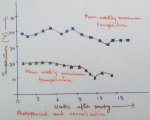Future Tense and its Forms
The Future Tense relates to a Future event or a future state of being.
It points out to something planned or destined or promised which is yet to be executed. The event has not taken place as of now but is expected to at some time in future.
Future Tense is used to denote:
1. Predictions / Statement of facts. (will)
Example: The sun will set early in the winter months.
· Intentions (going to)
We are going to watch a movie later tonight.
· Arrangements / Plans
I am going to meet the dentist tomorrow.
· Schedules / itineraries.
We are going to Germany next year for the annualholidays.
· Promises
Example: I will meet you next week.
I am going to London next month.
· Since the future Tense does not make use of any inflected forms, it uses helping verbs like will / shall with the base form of the Verb to make sentences.
Example: I shall not be available for the show next week.
· The word ‘go’ or ‘going to’ is also frequently brought into use with am/ is / are to form sentences.
Example: I am going to watch the concert tomorrow.
The Future tense is further categorized on the basis of whether the event shall be completed in the future or will remain in continuation for some time in the future.
Based on this criteria, Future Tense can be further sub-classified in four categories:
1. Simple Future Tense / Future Indefinite Tense:
This is the most commonly brought into use Future Tense form, while talking about an event or action that is proposed to take place in the future.
Examples: I shall visit my mother next month.
We shall celebrate the Annual Day of the College in February.
Structure: Subject + will/shall + V1 + ….
2. Future Continuous Tense:
This denotes an action that shall remain in continuation or ongoing activity in future.
· It is also used for some activity that is planned or promised in the future.
Example: I shall be performing in the Annual Fest on all four days.
You will be visiting us in London in the summers.
Structure: Subject + shall/ will +be +V4 + ….
3. Future Perfect Tense:
This indicates activities that are expected to be completed at some point in the future, as planned or proposed.
Examples: You shall have finished writing the book by then.
You will have cooked the dinner by the time we arrive.
Structure: Subject + shall/will = have + V3+ …
4. Future Perfect Continuous/ Progressive Tense:
This indicates activities which shall continue for some period in the past and will be completed too at a specified point in the past.
Examples: You will have been working in this company for 5 years by next December.
I shall have been playing the piano for over a decade by the end of this year.
Structure: Subject +will/shall+ have + been + V4 +….
· This is usually brought into use with adverbs of time.
English Grammar and Composition
From Future Tense and its Forms to HOME PAGE
Recent Articles
-
Eleventh Grade | Eleventh Grade Science | Eleventh Grade Math
Jun 27, 25 12:26 AM
Eleventh grade biology has been designed in accordance with the recommended topics. We will cover all the topics in biology very exciting and interesting way. -
Explain Digestion of Food | Salivary Glands | Oesophagus | Stomach
Jun 27, 25 12:20 AM
Before the digestion is start by the different enzymes secreted from the different digestive glands food must be turned and chut or mixed with saliva inside the mouth. -
Explain Human Digestive System | Mouth | Tongue | Pharynx | Teeth
Jun 21, 25 01:15 PM
Digestive system is a system of alimentary canal and digestive glands. Alimentary canal- alimentary canal is a tube of variable diameter having muscular wall and glandular epithelial tissues which sta… -
Vernalisation in Plants | Definition | Mechanism | Devernalization |
Jun 18, 25 01:34 PM
Definition of vernalisation- The change of flowering habit due to the low temperature treatment is known as vernalisation. This is a physiological process which was denoted by Clipart in 1857 invite b… -
The Food We Eat | Food we Get from Plants and Animals | Carbohydrates
Jun 15, 25 03:20 PM
What are the food that we should eat? Find out the names of ten food items in the word maze. Write the names in the correct column of the table given below. Food we get from plants Food we get from an…




New! Comments
Have your say about what you just read! Leave me a comment in the box below.